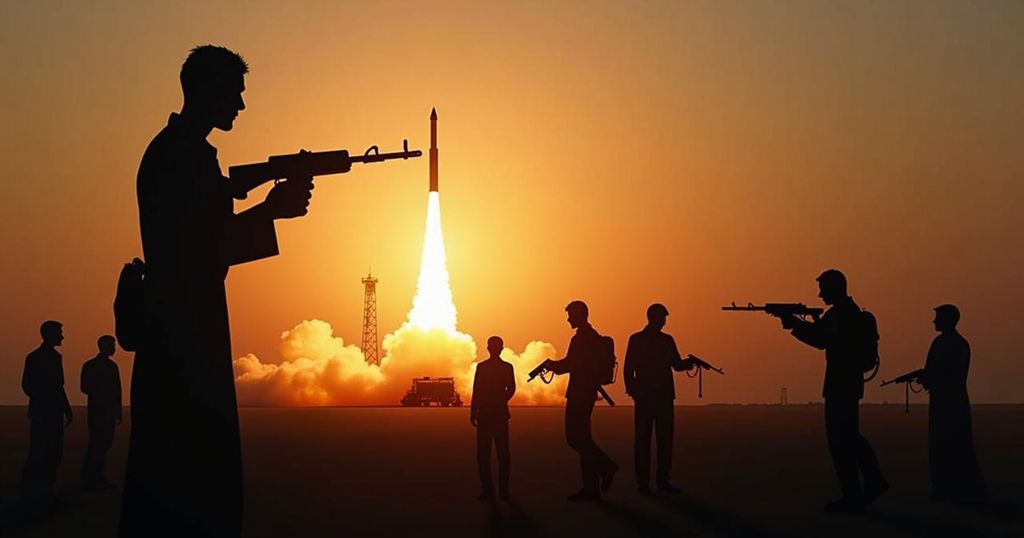This article discusses the recent escalation of tensions following Iran’s missile attacks on Israel, which were framed as retaliation for recent killings of key Hamas and Hezbollah figures. Both Israeli and U.S. officials have warned of severe consequences for Iran’s actions as Israel continues its ground operations in southern Lebanon. The broader context includes the ongoing Israel-Gaza war and the severe humanitarian crisis in the region.
In recent developments, Israel and the United States have issued stern warnings to Iran following its launch of nearly 200 ballistic missiles towards Israel. This action, characterized by Tehran as retaliation for the recent deaths of key Hamas and Hezbollah leaders, has been deemed a significant error by Israeli officials. Prime Minister Benjamin Netanyahu remarked, “This evening, Iran made a big mistake — and it will pay for it.” Additionally, White House National Security Adviser Jake Sullivan confirmed that Iran would experience “severe consequences” for these provocative strikes, which were executed after Israel initiated localized ground operations aimed at combating Hezbollah forces in southern Lebanon. The escalation of conflict in this region has been alarming. Israel’s military has reported the commencement of ground operations in southern Lebanon as part of an ongoing strategy to address threats from Hezbollah. Meanwhile, the broader Middle Eastern landscape remains fraught with tension, particularly as the Israel-Gaza war has continued for several months, beginning with a significant Hamas assault on October 7, which resulted in the deaths of approximately 1,200 individuals and the taking of hostages. This conflict has led to vast human displacement, with reports indicating the largest migration crisis since the establishment of Israel in 1948. Furthermore, humanitarian crises have unfolded in the Gaza Strip, with tens of thousands of lives lost and a significant proportion of the remaining population facing dire conditions akin to famine. Despite international calls for increased humanitarian aid, Israeli authorities have maintained a restrictive approach. U.S. involvement remains evident through military support and financial aid, notwithstanding observable tensions between Israeli leadership and certain U.S. political figures, including President Biden. The historical roots of the Israeli-Palestinian conflict underscore the complexities of this ongoing strife, warranting a comprehensive understanding of the persistent divisions that predate the state of Israel itself.
The current conflict between Israel and various actors in the region, particularly Hamas and Hezbollah, can be traced back to a long-standing history of tension that intensified following the establishment of the state of Israel in 1948. The recent missile strikes by Iran are positioned within a context of retributive action following the targeted killings of influential leaders from Hamas and Hezbollah. Israel’s proactive military measures, including ground operations in southern Lebanon against Hezbollah, highlight the volatile security dynamics in this region. The Israel-Gaza war has further complicated these regional tensions, resulting in a humanitarian crisis of unprecedented scale.
In summary, the situation surrounding Israel, Iran, and their respective allies and adversaries illustrates a precarious escalation of military engagements. As Iran undertakes aggressive actions against Israel, both the U.S. and Israeli governments have committed to addressing these challenges with decisive measures. The outcomes of these military escalations and the ongoing humanitarian crises in Gaza and Lebanon will have profound implications for regional stability and international relations going forward.
Original Source: www.washingtonpost.com






